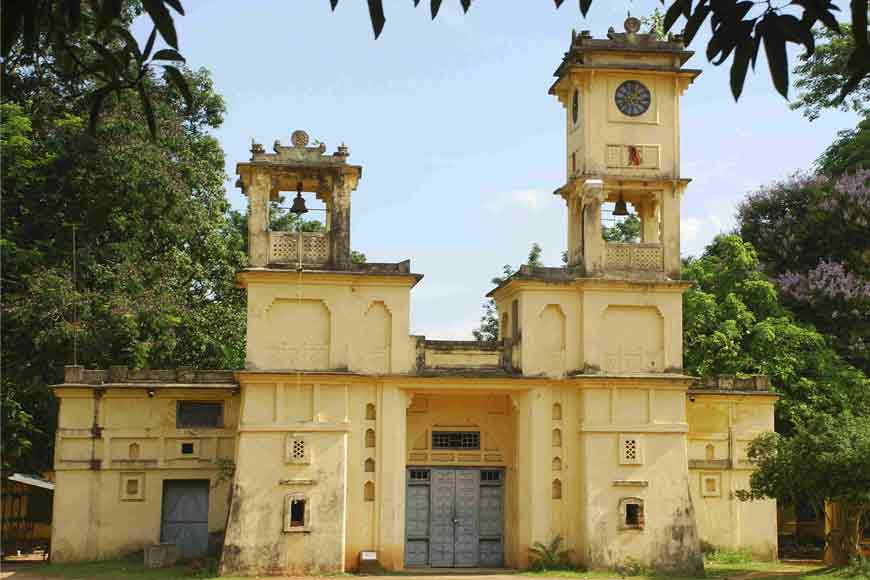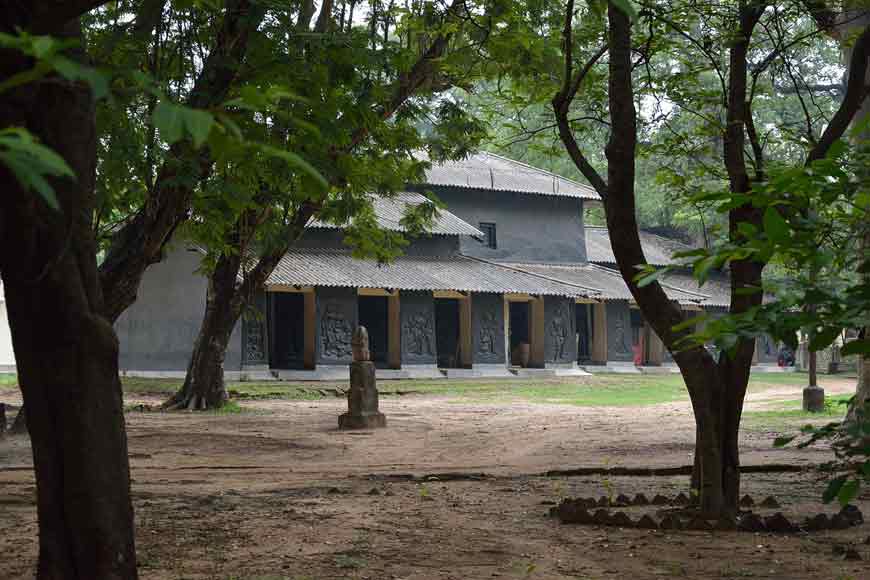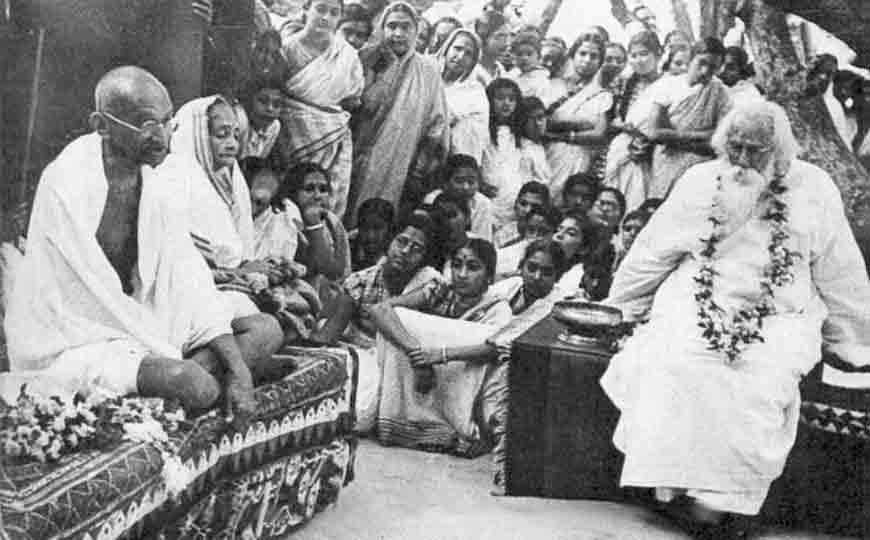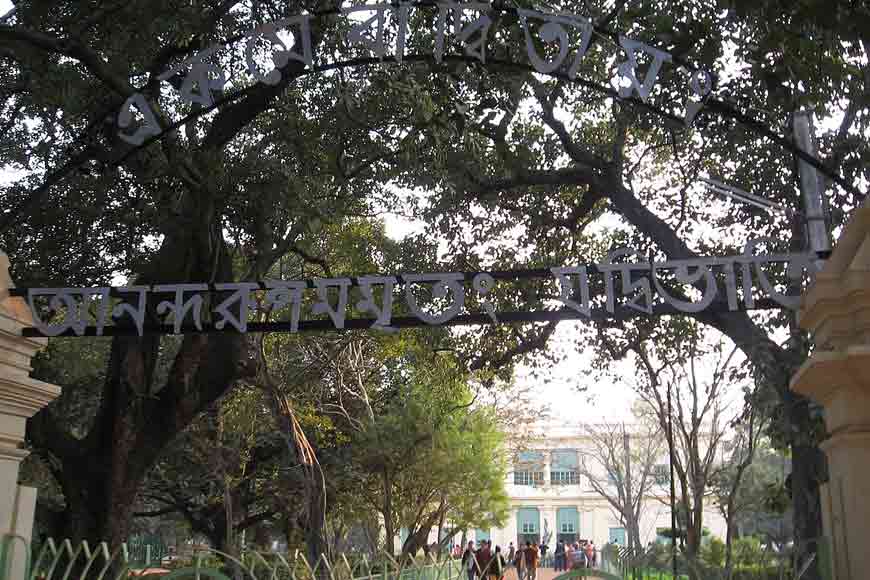Vision Beyond Education

Visva of Visva Bharati was the world, a world beyond the confines of a typical University structure. Rabindranath Tagore was not just a Nobel Laureate, he was an extraordinary institution builder and his thoughts always transcended international boundaries. For him the world was his home. No wonder, when he started Visva Bharati, it turned into an epitome of borderless education. According to Tagore, the University did not belong to Santiniketan or Birbhum or West Bengal, or even India. Rather it belonged to the entire world. Here people, faculty and students came from all over the world, stayed on campus, interacted and carried out research and teaching.
 Kalo Bari Santiniketan
Kalo Bari Santiniketan
Tagore was a universalist who viewed education as a holistic, all-encompassing human endeavour, unifying arts and sciences. He believed in our traditions, which were deeply rooted in the Eastern values of India, Persia, China and Japan. But he also wanted assimilation of Western thoughts and ideals. Take for example the word Bharati. It is a remarkable phrase with multiple meanings. It means Saraswati, the Goddess of learning on one hand and denotes Bharat, India and Visva Bharati thus turns into a seat of learning where East meets West.
 Mahatma Gandhi and Rabindranath Tagore
Mahatma Gandhi and Rabindranath Tagore
A year before his death Tagore appealed to Mahatma Gandhi, through a letter in 1940 to take a closer interest in Visva Bharati which he described as : ‘A vessel carrying the cargo of my life’s best treasure and I hope it may claim special care from my countrymen for its preservation.’ Gandhi replied the same day stating: ‘You may depend upon my doing all I can in the common endeavour to assure its permanence’ and added that ‘Visva Bharati was both national and international institution.’
Tagore was a universalist who viewed education as a holistic, all-encompassing human endeavour, unifying arts and sciences. He believed in our traditions, which were deeply rooted in the Eastern values of India, Persia, China and Japan.
Tagore believed that education was a vehicle for emancipation of mind and that this process could not be confined to just blackboard teaching of arts and science subjects. Thus every student had an exposure to cultural aspects of life, involving music, painting, sculptures etc. and thus Visva Bharati turns into ‘a real university.’ What we call the University of Liberal Arts these days was founded by Tagore decades ago, where it was possible for an undergraduate student to take for instance courses in linguistics, computer, science, music, painting and even theoretical physics.
His approach to education was remarkable – education begins in primary school and like the roots of a tree, grows into flourishing branches and leaves that constitute the university. ThusPatha Bhavan and Siksha Sutra were the base of Visva Bharati. Tagore himself often took classes at Patha Bhavan. Many illustrous persons like Dr Amartya Sen studied there. This was a school where children understood science in its most rudimentary form.
Also read : Where the Mind is without Fear
 Santiniketan Griha from the entrance gate
Santiniketan Griha from the entrance gate
Tagore believed that education was a vehicle for emancipation of mind and that this process could not be confined to just blackboard teaching of arts and science subjects. Thus every student had an exposure to cultural aspects of life, involving music, painting, sculptures etc. and thus Visva Bharati turns into ‘a real university.’
While Siksha Sutra was started so that students could go and work in villages around Surul, for rural reconstruction. Even today, it is the nucleus of hands-on training to rural students on pottery, weaving, textiles and rural biotechnology. This is a unique example where Tagore is concerned about neighbouring villages and feels his University needs to reach out to the neighbourhood with the message of holistic vocation education for rural youths and children.
This is where Rabindranath Tagore’s vision again stands out, where he thinks beyond education.











